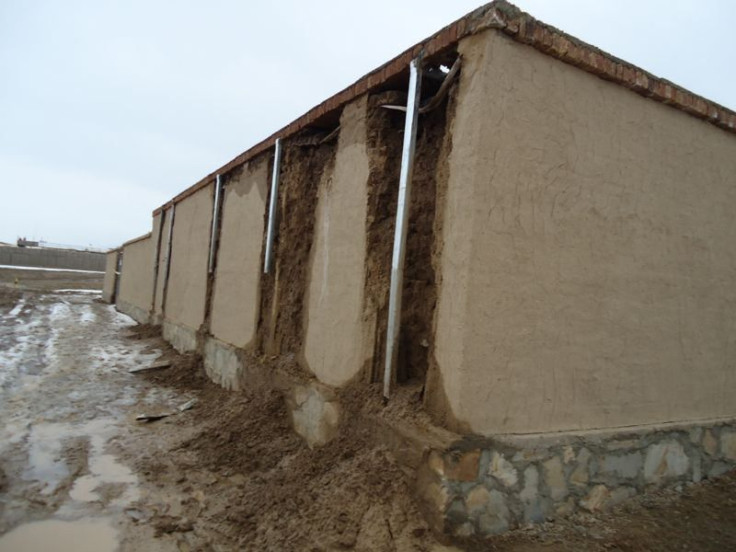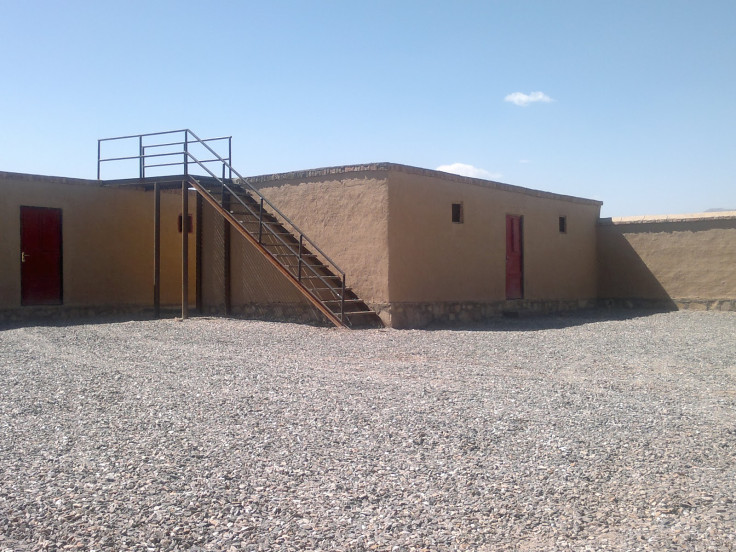US-Built Police Buildings In Afghanistan Are 'Melting'

The U.S. Government paid nearly half a million dollars to build a training center for Afghan police in 2012. It all went well until the facility started to “melt."
According to John Sopko, the Special Inspector General for Afghanistan Reconstruction (SIGAR), a local contractor cut a few corners while constructing the buildings, and the American officials in charge weren’t keeping track. Eventually, the buildings were demolished and rebuilt using money from the Afghan Ministry of the Interior.
“Although this project may have been well intentioned, the fact that the Afghans had to demolish and rebuild the [dry fire range] is not only an embarrassment, but, more significantly, a waste of U.S. taxpayers money,” Sopko wrote in a report this week.
Sopko's office is responsible for overseeing the more than $104 billion in U.S. spending on Afghanistan’s reconstruction. The "melting" buildings in Afghanistan's Logar province are only the latest examples of wasteful spending uncovered by Sopko’s office, known as SIGAR. On Jan. 12, it published another report showing that despite spending more than $300 million on local police salaries there is “little assurance that these funds are going to active police personnel or that the amounts paid are correct.” Earlier this month it found a military base was struggling with serious electrical problems despite a $57.1 million renovation.
In May 2012, the the U.S. Central Command’s operating base in Logar province awarded a $456,669 contract to a local contractor to build a set of adobe-style buildings meant to mimic a typical Afghan village, to help Afghan Special Police Training Center conduct exercises with trainees.

At first, the buildings were fine. But the contractor, Qesmatullah Nasrat Construction Company, didn’t “adhere to contract requirements and international building standards. For instance, the roof wasn’t sloped properly to allow rainfall to pour off, and workers used bricks that weren’t strong enough to repel water. Soon, the buildings started to fall apart.

While the contractors were certainly at fault, Sopko’s office found another source of the trouble -- the supervisors.
“Unfortunately, this problem was compounded by poor oversight on the part of the responsible U.S. government officials,” he wrote, noting that even though representatives conducted seven site inspections, their reports never mentioned any of the problems. It wasn’t until a separate official visited the facility that he noted the problem to the American contracting office, which had until then “failed to hold the contractor fully accountable.”
© Copyright IBTimes 2025. All rights reserved.






















